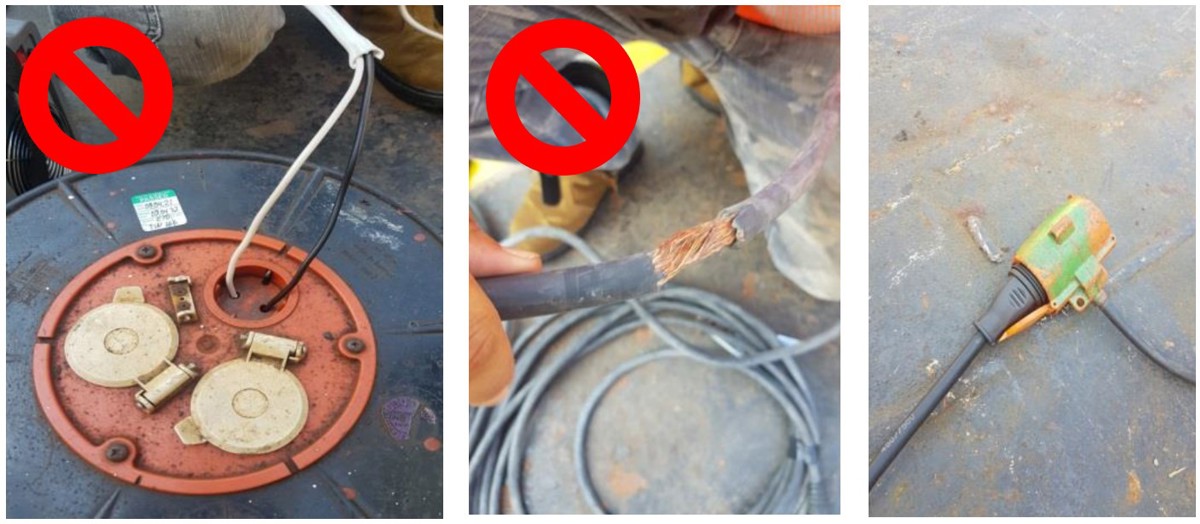Use of damaged electrical equipment by dock workers
- Safety Flash
- Published on 25 November 2021
- Generated on 13 July 2025
- IMCA SF 32/21
- 2 minute read
Jump to:
Third-party crew working on a vessel being demobilised were observed using damaged electrical equipment.
What happened?
Third-party welders were preparing to weld the anchor sea-fastening onto the main deck aft.
Vessel crew noticed that the electric cable of the welding machine was connected to the electric cord extension without a plug, and the cable cover was damaged.
The job was immediately stopped. The vessel ETO repaired the damaged wiring and installed an appropriate plug – illustrated in the third photograph on the right below.

What went right?
The crew of the vessel are to be commended for noticing the matter and for exercising their STOP WORK AUTHORITY.
What went wrong?
Our member notes that the third-party workers did not bring the proper tools for the job, nor did they carry out visual inspection of electrical equipment.
Lessons learned
IMCA notes that this incident occurred on a vessel in a port in an area of recent strong growth and emerging markets.
In addition to the electrical safety issues, there may be lessons to learn about control of sub-contractors and third-party crew, particularly at very busy times such as port calls and mobilisations.
Related Safety Flashes
-
IMCA SF 26/21
22 September 2021
-
-
IMCA SF 24/21
31 August 2021
-
-
IMCA SF 24/21
31 August 2021
-
-
IMCA SF 10/21
8 April 2021
-
IMCA Safety Flashes summarise key safety matters and incidents, allowing lessons to be more easily learnt for the benefit of the entire offshore industry.
The effectiveness of the IMCA Safety Flash system depends on the industry sharing information and so avoiding repeat incidents. Incidents are classified according to IOGP's Life Saving Rules.
All information is anonymised or sanitised, as appropriate, and warnings for graphic content included where possible.
IMCA makes every effort to ensure both the accuracy and reliability of the information shared, but is not be liable for any guidance and/or recommendation and/or statement herein contained.
The information contained in this document does not fulfil or replace any individual's or Member's legal, regulatory or other duties or obligations in respect of their operations. Individuals and Members remain solely responsible for the safe, lawful and proper conduct of their operations.
Share your safety incidents with IMCA online. Sign-up to receive Safety Flashes straight to your email.